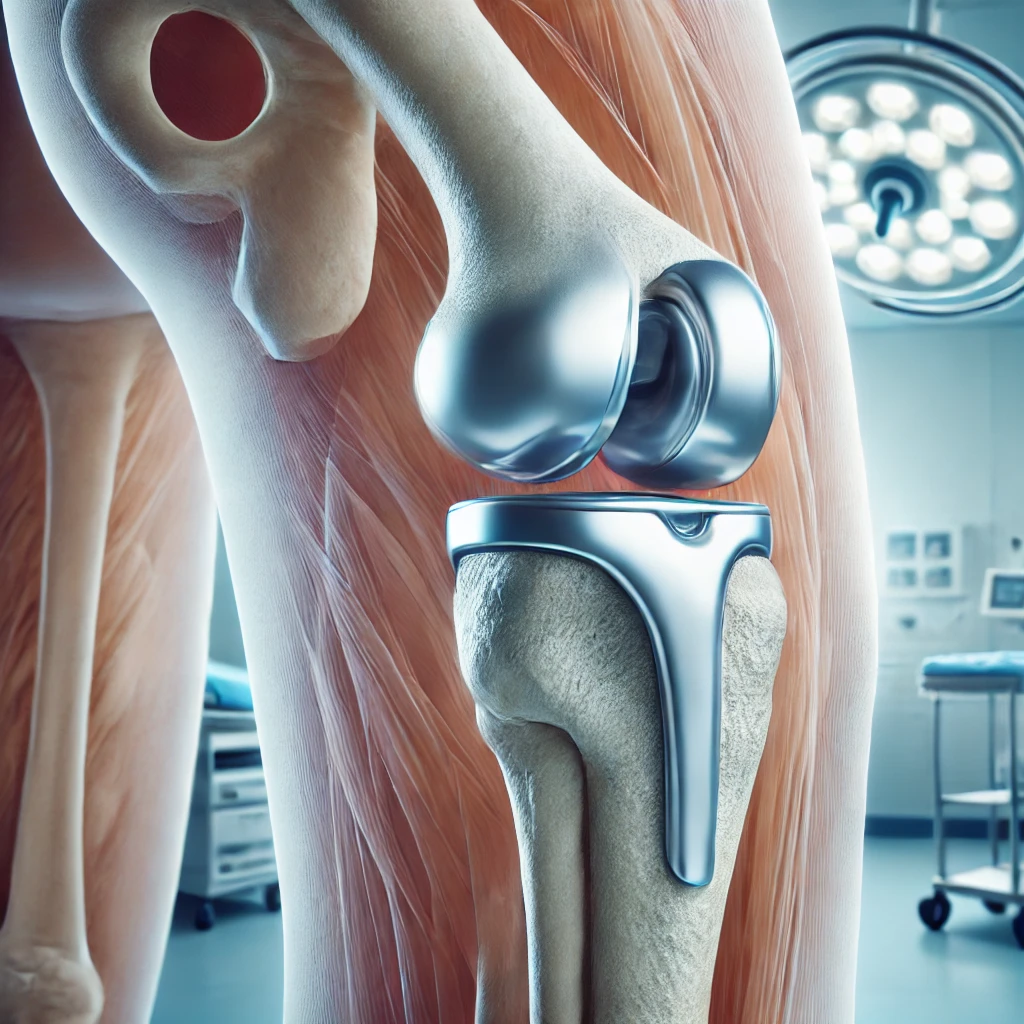
Arthroplasty (Joint Replacement Surgeries)
Our advanced joint replacement procedures utilize the latest surgical innovations to restore function and mobility. With a patient-centered approach, we ensure personalized treatment plans for optimal recovery. Experience enhanced quality of life through precision-driven orthopedic care.
Key Benefits of Joint Replacement
Experience pain relief, improved movement, and a better quality of life with state-of-the-art joint replacement surgery.
-
01 What if my patient doesn’t have a compatible donor?
We provide advanced donor-matching solutions and alternative treatments to ensure optimal outcomes for our patients.
-
02 How is the Emergency Department managed?
Our state-of-the-art emergency care unit is staffed with experienced professionals dedicated to providing immediate and effective medical attention.
-
03 What should I bring for my first consultation?
Please carry your medical records, previous test results, and any relevant health history for a comprehensive assessment.
-
04 What is the recovery time after joint replacement surgery?
Recovery time varies by patient, but most individuals resume daily activities within a few weeks with guided physiotherapy.
-
05 Are there non-surgical options for joint pain?
Yes, we offer a range of non-surgical treatments including physical therapy, medication, and lifestyle modifications to manage joint pain effectively.

Accident and Emergency Care
Our Accident and Emergency Care unit is equipped to handle all medical emergencies with advanced life-saving facilities. Our experienced team ensures rapid diagnosis and immediate treatment to stabilize critical conditions. We are committed to providing 24/7 emergency medical support with expert care.
Key Benefits of Emergency Care
Immediate response, expert diagnosis, and life-saving interventions for all medical emergencies.
-
01 What conditions are treated in emergency care?
We handle trauma, cardiac emergencies, strokes, respiratory distress, and all critical medical conditions requiring immediate care.
-
02 How quickly will I receive treatment?
Our team prioritizes cases based on severity, ensuring immediate attention to critical patients.
-
03 What should I bring in an emergency?
If possible, carry your ID, insurance details, medical history, and a list of current medications.
-
04 Do you offer ambulance services?
Yes, our fully equipped ambulances are available 24/7 for rapid response and patient transport.
-
05 How can I contact emergency care?
Call our 24/7 emergency helpline or visit our hospital's emergency department for immediate assistance.
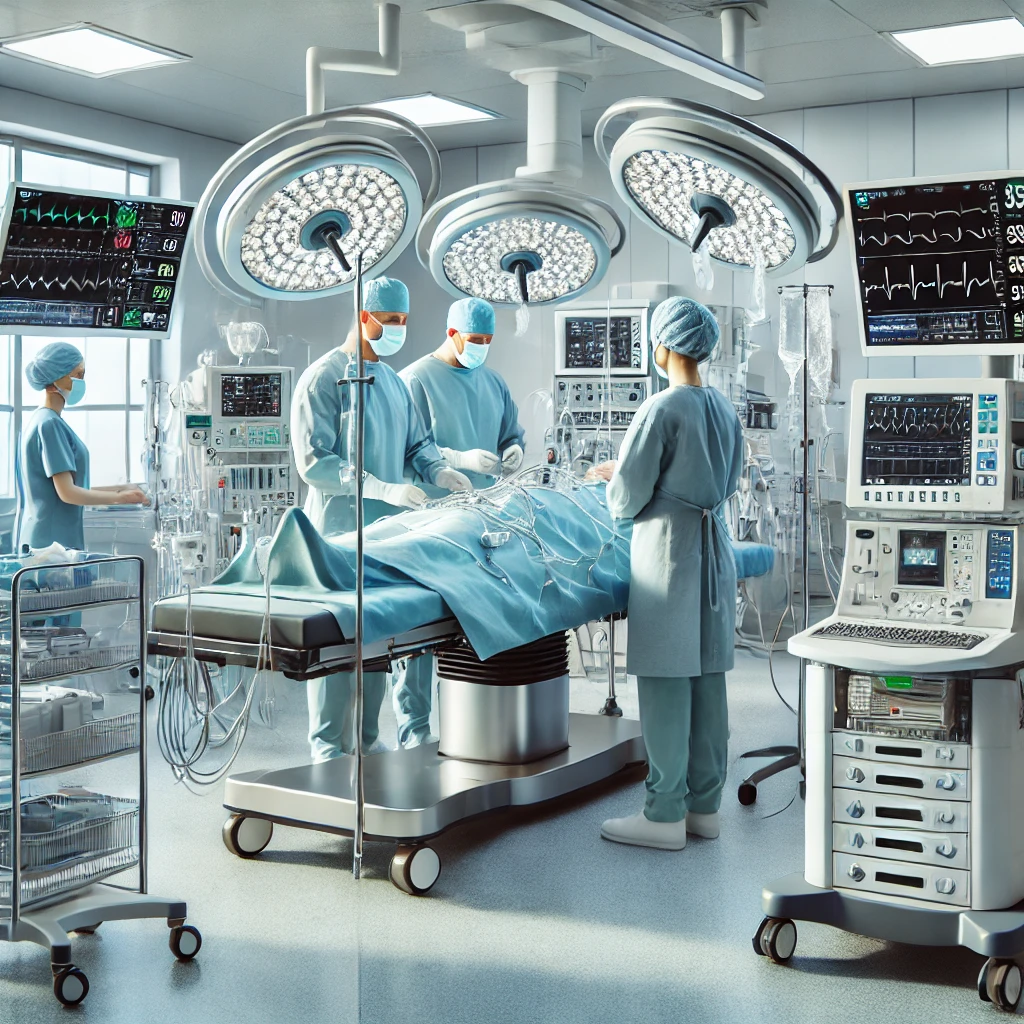
Anesthesiology
Our Anesthesiology department ensures patient safety and comfort during surgical procedures. With advanced techniques in general, regional, and local anesthesia, our team provides customized pain management solutions. We focus on precise monitoring and expert care to enhance recovery and minimize surgical risks.
Key Benefits of Anesthesiology
Effective pain relief, safe surgical experiences, and advanced monitoring techniques for optimal patient outcomes.
-
01 What types of anesthesia do you provide?
We offer general, regional, local, and sedation anesthesia based on the procedure and patient needs.
-
02 Is anesthesia safe?
Yes, our team follows strict safety protocols and uses advanced monitoring to ensure a safe experience.
-
03 What should I do before receiving anesthesia?
Follow fasting guidelines, disclose medical history, and discuss any concerns with your anesthesiologist.
-
04 How long does it take to recover from anesthesia?
Recovery time varies based on the type of anesthesia used, but most patients regain full alertness within a few hours.
-
05 Can anesthesia cause side effects?
Minor side effects like nausea and dizziness may occur but are temporary. Our team manages them effectively.
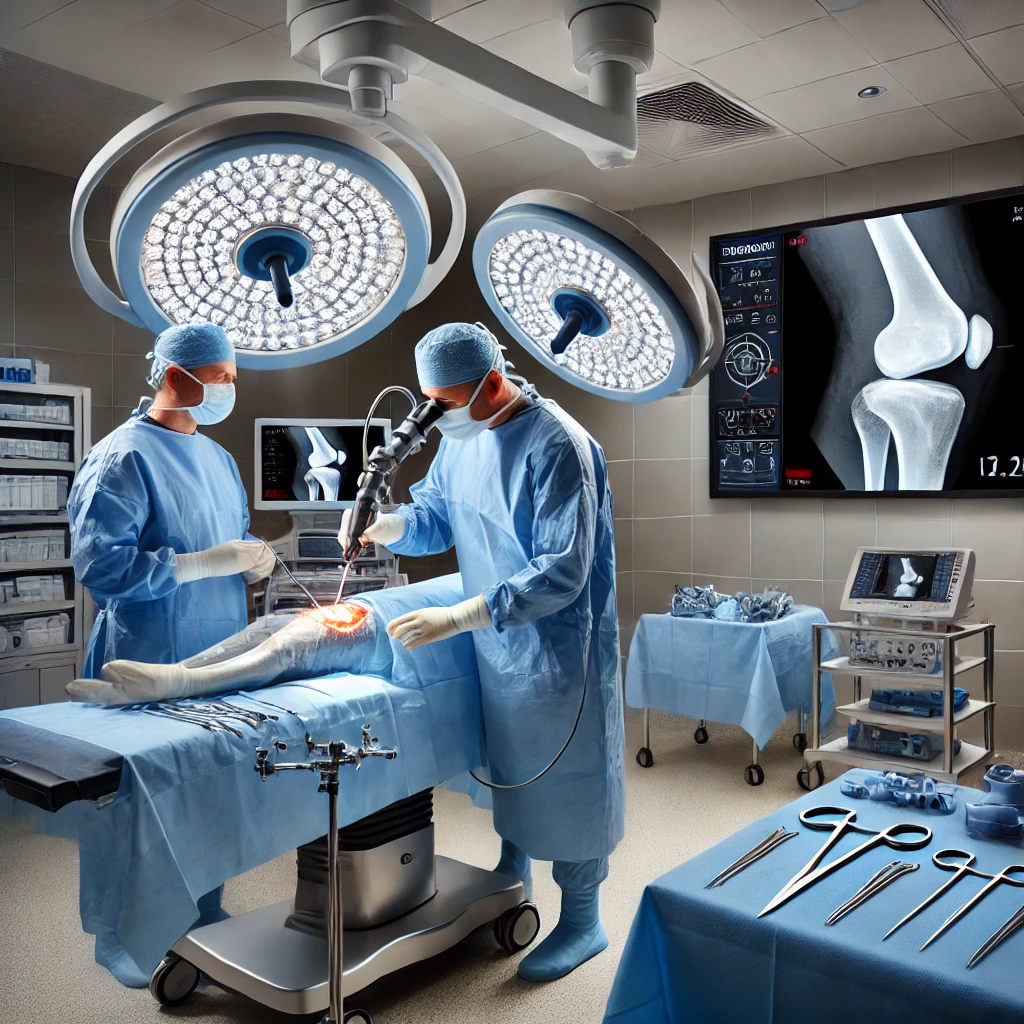
Arthroscopy
Our Arthroscopy department specializes in minimally invasive joint surgeries for accurate diagnosis and effective treatment of joint issues. With state-of-the-art technology, our specialists perform procedures to restore mobility and reduce pain with faster recovery times.
Key Benefits of Arthroscopy
Minimally invasive surgery, faster recovery, precise joint diagnosis, and reduced post-operative pain.
-
01 What is Arthroscopy used for?
Arthroscopy is used to diagnose and treat joint problems, including ligament tears, cartilage damage, and inflammation.
-
02 Is Arthroscopy a major surgery?
No, it is a minimally invasive procedure that requires only small incisions, leading to quicker recovery times.
-
03 How long is the recovery period?
Most patients can resume normal activities within a few weeks, depending on the severity of the condition.
-
04 What joints can be treated with Arthroscopy?
Common joints treated include the knee, shoulder, elbow, ankle, wrist, and hip.
-
05 Is Arthroscopy painful?
The procedure is performed under anesthesia, and post-operative pain is usually minimal and manageable.
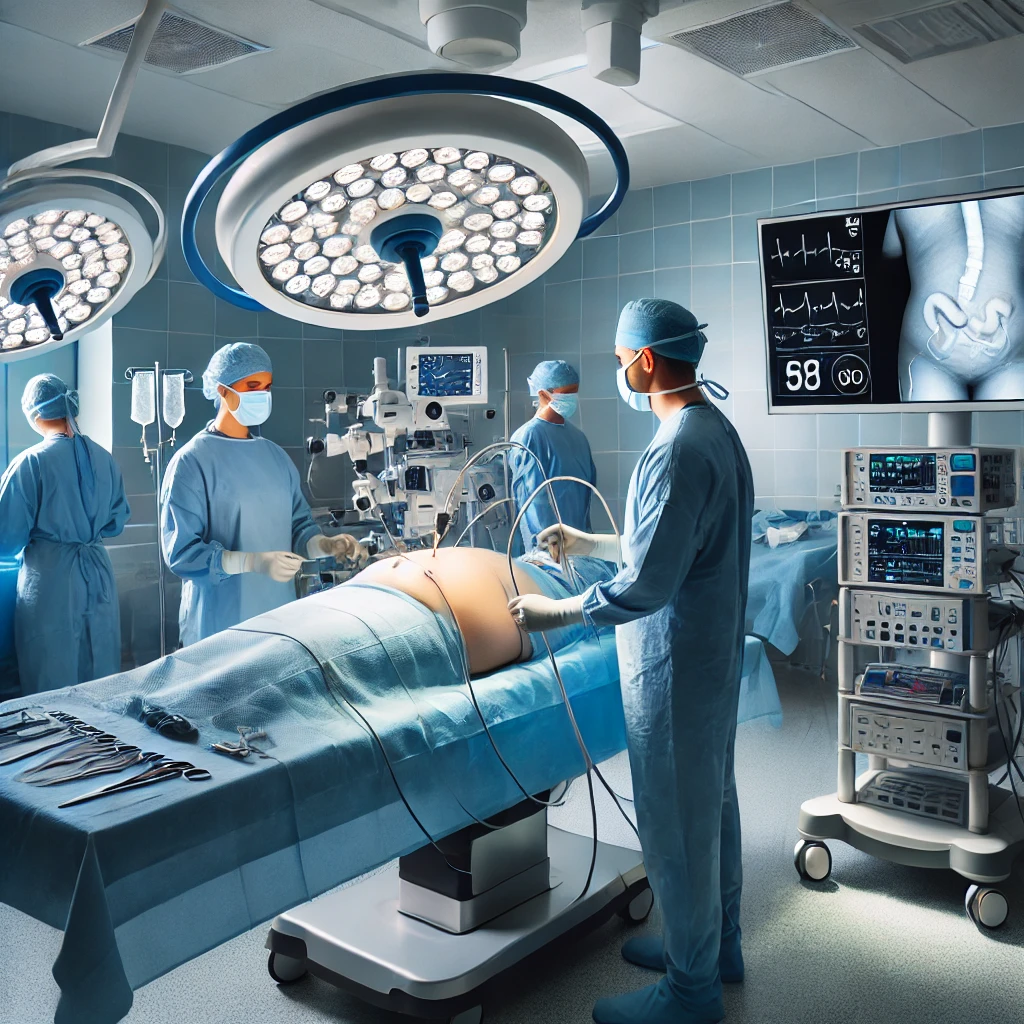
Bariatric Surgery
Our Bariatric Surgery department specializes in weight-loss procedures to help patients achieve long-term health and wellness. With advanced surgical techniques, we offer personalized treatment plans to manage obesity and related conditions, ensuring safe and effective outcomes for sustainable weight management.
Key Benefits of Bariatric Surgery
Significant weight loss, improved metabolic health, reduced risk of obesity-related diseases, and enhanced quality of life.
-
01 What is Bariatric Surgery?
Bariatric surgery is a weight-loss procedure that helps individuals with severe obesity manage their weight and improve health.
-
02 Who is eligible for Bariatric Surgery?
It is recommended for individuals with a BMI of 40+ or those with a BMI of 35+ with obesity-related health conditions.
-
03 What are the types of Bariatric Surgery?
Common procedures include Gastric Bypass, Sleeve Gastrectomy, Adjustable Gastric Banding, and Biliopancreatic Diversion.
-
04 What is the recovery time?
Most patients can return to normal activities within 2-4 weeks, with full recovery taking a few months.
-
05 Are there any risks?
Like any surgery, risks exist, but our team ensures a safe procedure with expert post-operative care.
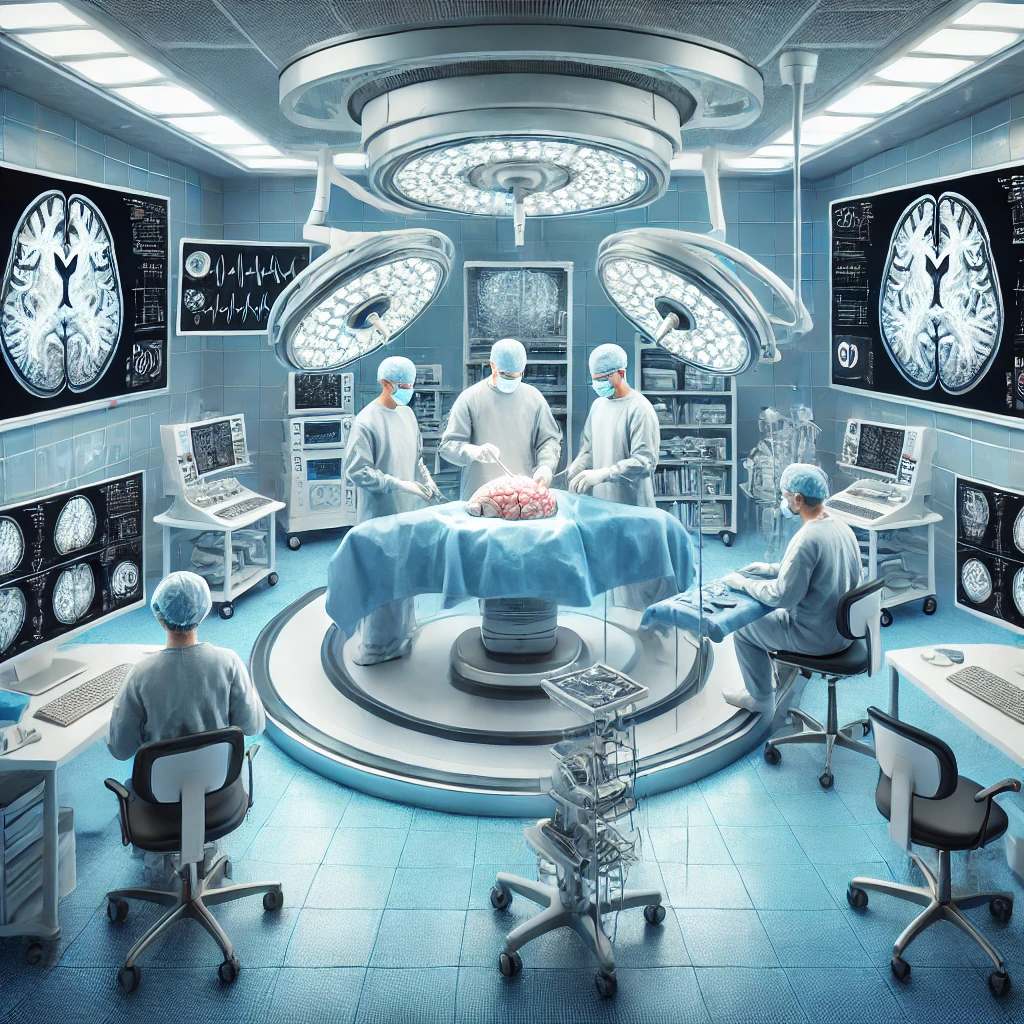
Brain Surgery
Our Brain Surgery department specializes in advanced neurosurgical procedures to treat various brain disorders, including tumors, aneurysms, and neurological conditions. With cutting-edge technology and expert neurosurgeons, we ensure precise diagnosis and effective treatments for optimal patient outcomes.
Key Benefits of Brain Surgery
Precise treatment for neurological disorders, improved brain function, advanced surgical techniques, and enhanced patient recovery.
-
01 What is Brain Surgery?
Brain surgery involves surgical interventions to treat brain tumors, injuries, aneurysms, and other neurological conditions.
-
02 When is Brain Surgery necessary?
It is required for conditions such as brain tumors, epilepsy, aneurysms, and traumatic brain injuries.
-
03 What are the types of Brain Surgery?
Common procedures include craniotomy, endoscopic brain surgery, deep brain stimulation, and tumor removal surgeries.
-
04 What is the recovery time?
Recovery varies by procedure but typically takes weeks to months, with rehabilitation as needed.
-
05 Are there any risks?
Risks include infection, bleeding, and neurological complications, but our expert team ensures safe and effective procedures.
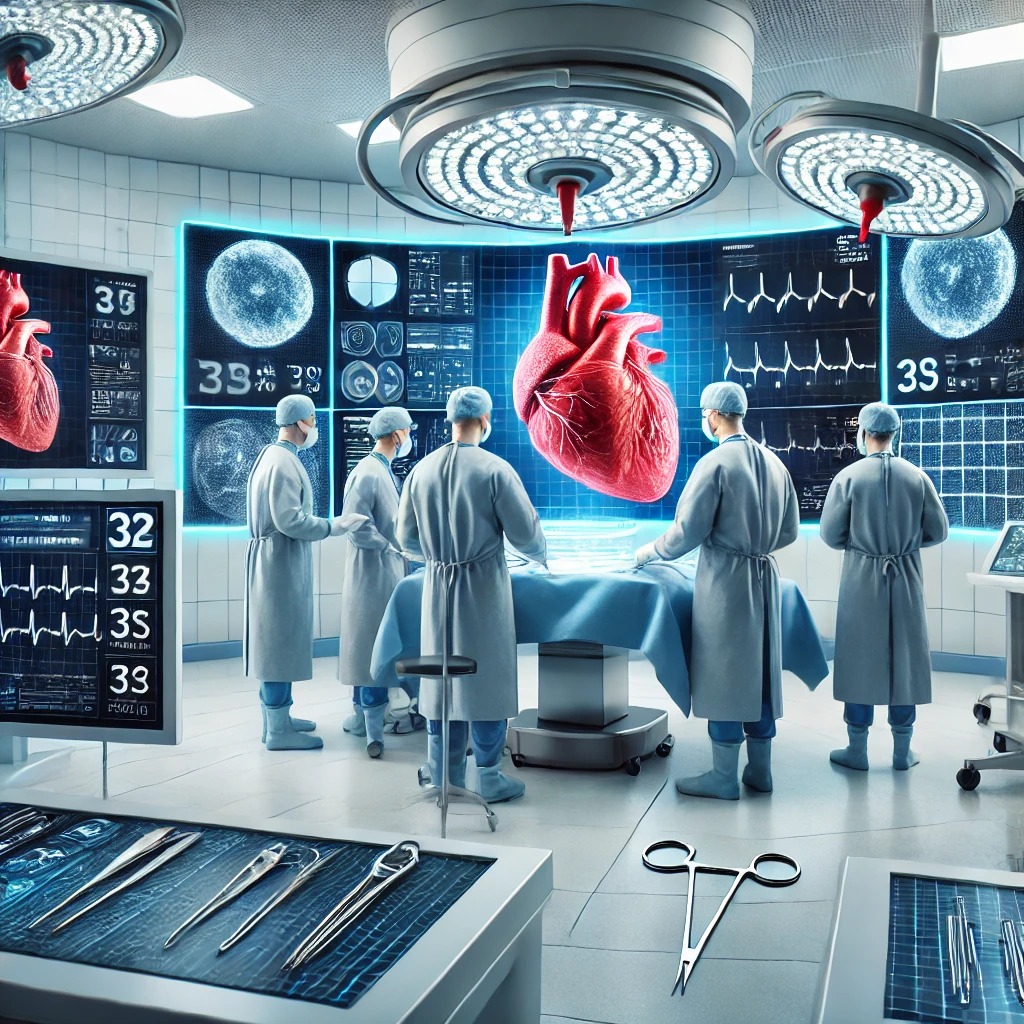
Cardiology
Our Cardiology department specializes in the diagnosis and treatment of heart diseases, including coronary artery disease, heart failure, arrhythmias, and congenital heart conditions. With state-of-the-art technology and expert cardiologists, we provide comprehensive cardiac care for better heart health and overall well-being.
Key Benefits of Cardiology Services
Early diagnosis, advanced treatment options, improved heart health, and expert cardiac care for a healthier life.
-
01 What is Cardiology?
Cardiology is the branch of medicine that deals with heart-related diseases and conditions, including treatment and prevention.
-
02 When should I see a Cardiologist?
If you experience symptoms like chest pain, shortness of breath, high blood pressure, or irregular heartbeats, consult a cardiologist.
-
03 What are common heart diseases?
Common conditions include coronary artery disease, heart failure, arrhythmias, hypertension, and congenital heart defects.
-
04 How can I prevent heart disease?
Maintaining a healthy diet, regular exercise, managing stress, and avoiding smoking are key preventive measures.
-
05 Are there risks in heart treatments?
Some treatments carry risks, but with advanced medical technology and experienced cardiologists, we ensure safe and effective care.
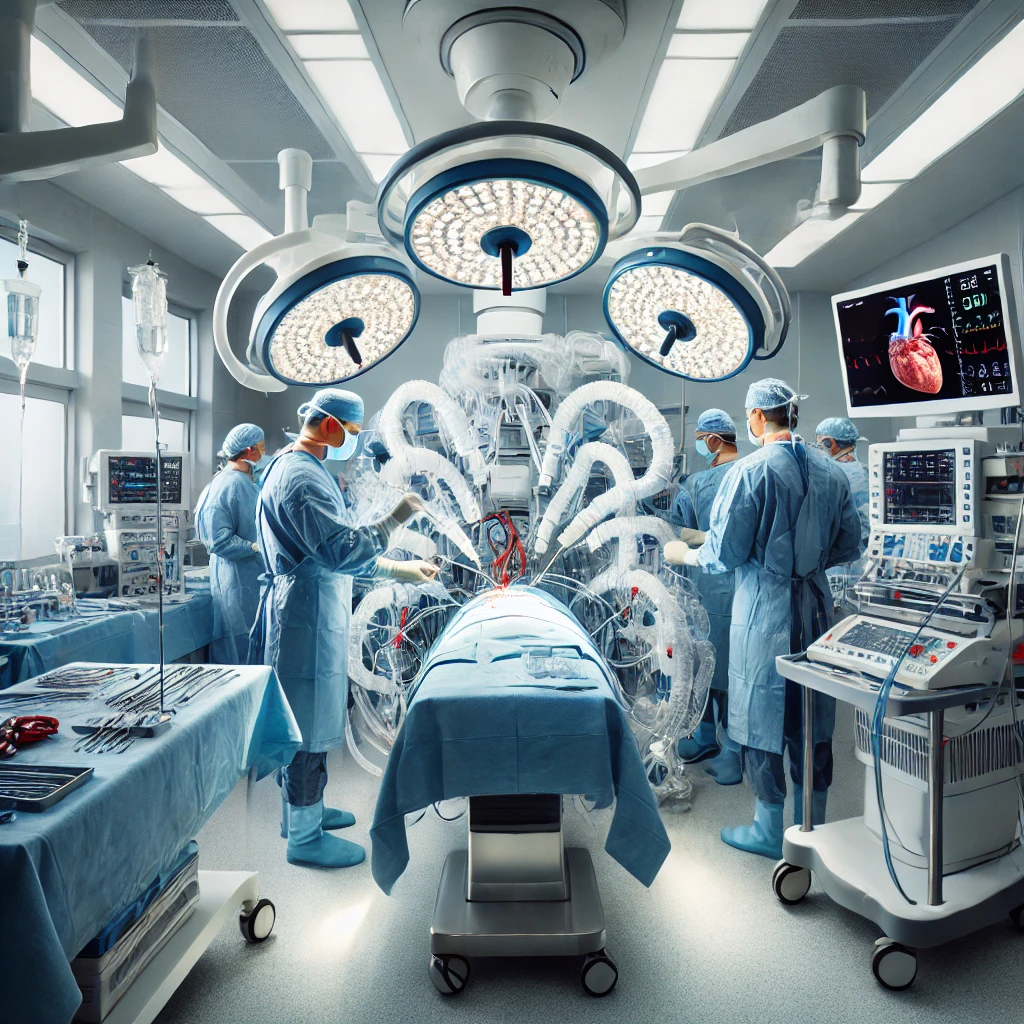
Vascular Surgery
Our Vascular Surgery department specializes in the diagnosis and treatment of diseases affecting the blood vessels, including arteries and veins. We offer advanced surgical and minimally invasive procedures for conditions such as peripheral artery disease, varicose veins, aneurysms, and vascular malformations, ensuring effective treatment and improved vascular health for our patients.
Key Benefits of Vascular Surgery
Advanced surgical and minimally invasive techniques to treat vascular disorders, promote faster recovery, and improve long-term vascular health.
-
01 What is Vascular Surgery?
Vascular Surgery is a medical specialty focused on diagnosing and treating conditions of the arteries, veins, and lymphatic system, excluding the heart and brain.
-
02 When is Vascular Surgery necessary?
It is required for conditions such as peripheral artery disease, aneurysms, varicose veins, and blocked blood vessels.
-
03 What are the types of Vascular procedures?
Common procedures include angioplasty, stenting, vascular bypass surgery, and varicose vein treatment.
-
04 What is the recovery process?
Recovery varies by procedure but may involve short hospital stays, medications, lifestyle changes, and regular follow-up care.
-
05 Are there risks involved?
As with any surgery, there are risks such as bleeding or infection. However, our skilled vascular surgeons strive to ensure safe and successful outcomes.
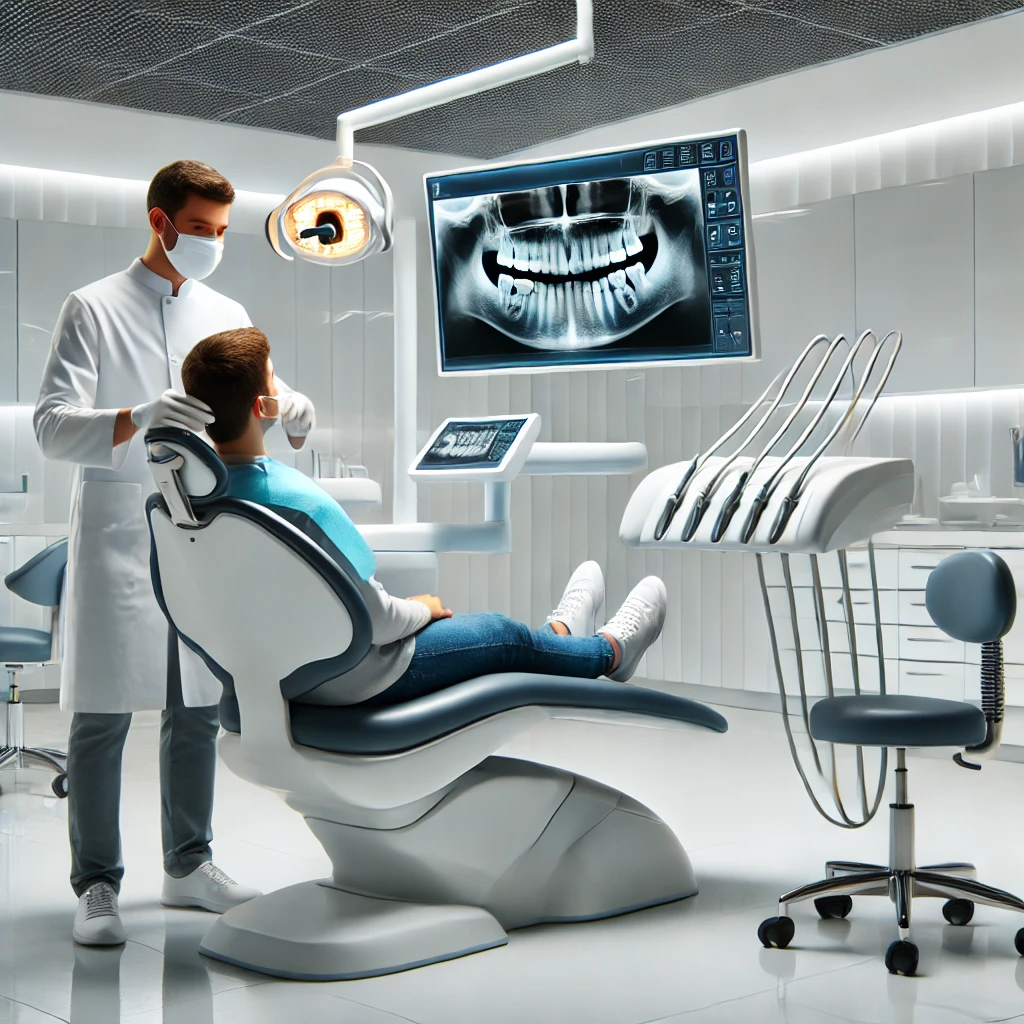
Dental Care
Our Dental Care department offers comprehensive oral health services, including preventive care, cosmetic dentistry, orthodontics, and restorative treatments. With advanced dental technology and experienced dentists, we ensure healthy smiles and optimal oral hygiene.
Key Benefits of Dental Care
Preventive dental care, cosmetic enhancements, pain-free treatments, and expert dental solutions for a confident smile.
-
01 What is Dental Care?
Dental care involves maintaining oral health through preventive measures, diagnosis, and treatment of dental issues.
-
02 When should I visit a Dentist?
Regular checkups every six months or if you experience tooth pain, sensitivity, bleeding gums, or dental emergencies.
-
03 What are common dental procedures?
Procedures include teeth cleaning, fillings, root canals, braces, dental implants, and teeth whitening.
-
04 How can I maintain good oral health?
Brushing twice daily, flossing, using mouthwash, and regular dental checkups help maintain oral hygiene.
-
05 Are dental treatments painful?
Modern dental techniques ensure pain-free treatments with anesthesia and sedation options for comfort.
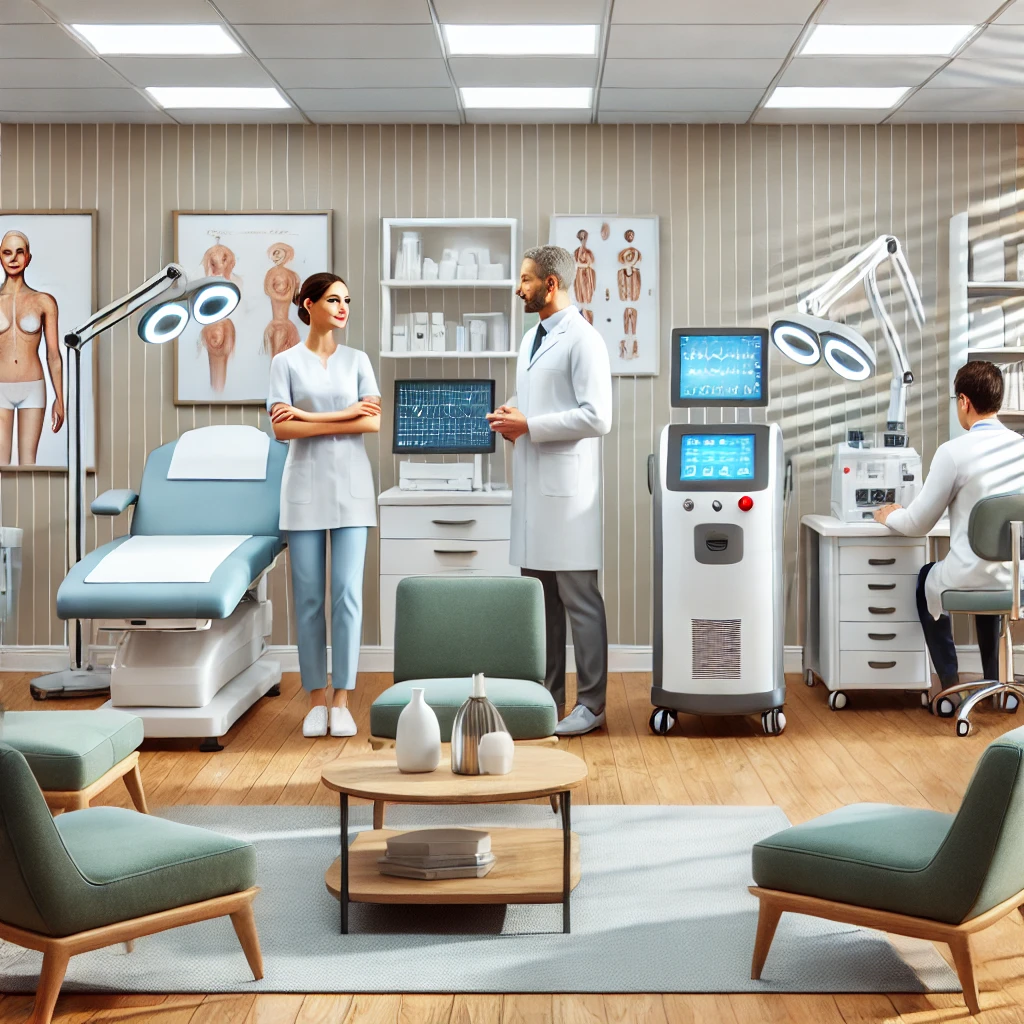
Dermatology
Our Dermatology department specializes in the diagnosis and treatment of skin, hair, and nail conditions. We provide advanced dermatological care for acne, eczema, psoriasis, skin infections, and cosmetic skin treatments to enhance and restore skin health.
Key Benefits of Dermatology Care
Advanced skin treatments, personalized skincare solutions, non-invasive cosmetic procedures, and expert dermatological care.
-
01 What is Dermatology?
Dermatology is a medical specialty that focuses on diagnosing and treating conditions related to the skin, hair, and nails.
-
02 When should I see a Dermatologist?
You should visit a dermatologist if you have persistent acne, rashes, eczema, skin infections, or need cosmetic skin treatments.
-
03 What are common dermatology treatments?
Treatments include acne management, laser therapy, botox, skin peels, mole removal, and scar treatment.
-
04 How can I maintain healthy skin?
Use sunscreen, maintain a balanced diet, stay hydrated, and follow a skincare routine recommended by dermatologists.
-
05 Are dermatology procedures safe?
Yes, all procedures are performed by trained specialists using advanced techniques to ensure safe and effective results.

Diabetes and Endocrinology
Our Diabetes and Endocrinology department provides specialized care for diabetes management, thyroid disorders, hormonal imbalances, and metabolic conditions. With advanced diagnostic tools and expert endocrinologists, we offer personalized treatment plans to maintain optimal health.
Key Benefits of Diabetes & Endocrinology Care
Expert diabetes management, hormone regulation, personalized treatment plans, and advanced endocrinological care.
-
01 What is Diabetes & Endocrinology?
It is a medical specialty that focuses on diagnosing and treating hormonal imbalances, diabetes, thyroid disorders, and metabolic conditions.
-
02 When should I see an Endocrinologist?
You should consult an endocrinologist if you have uncontrolled diabetes, thyroid problems, weight fluctuations, or hormonal imbalances.
-
03 What are common endocrinology treatments?
Treatments include insulin therapy, thyroid medications, hormone replacement therapy, and lifestyle management for diabetes.
-
04 How can I manage diabetes effectively?
Regular monitoring, a balanced diet, exercise, medication adherence, and specialist guidance are key to effective diabetes management.
-
05 Are diabetes and hormonal disorders curable?
While some conditions are manageable rather than curable, proper treatment and lifestyle changes can significantly improve quality of life.
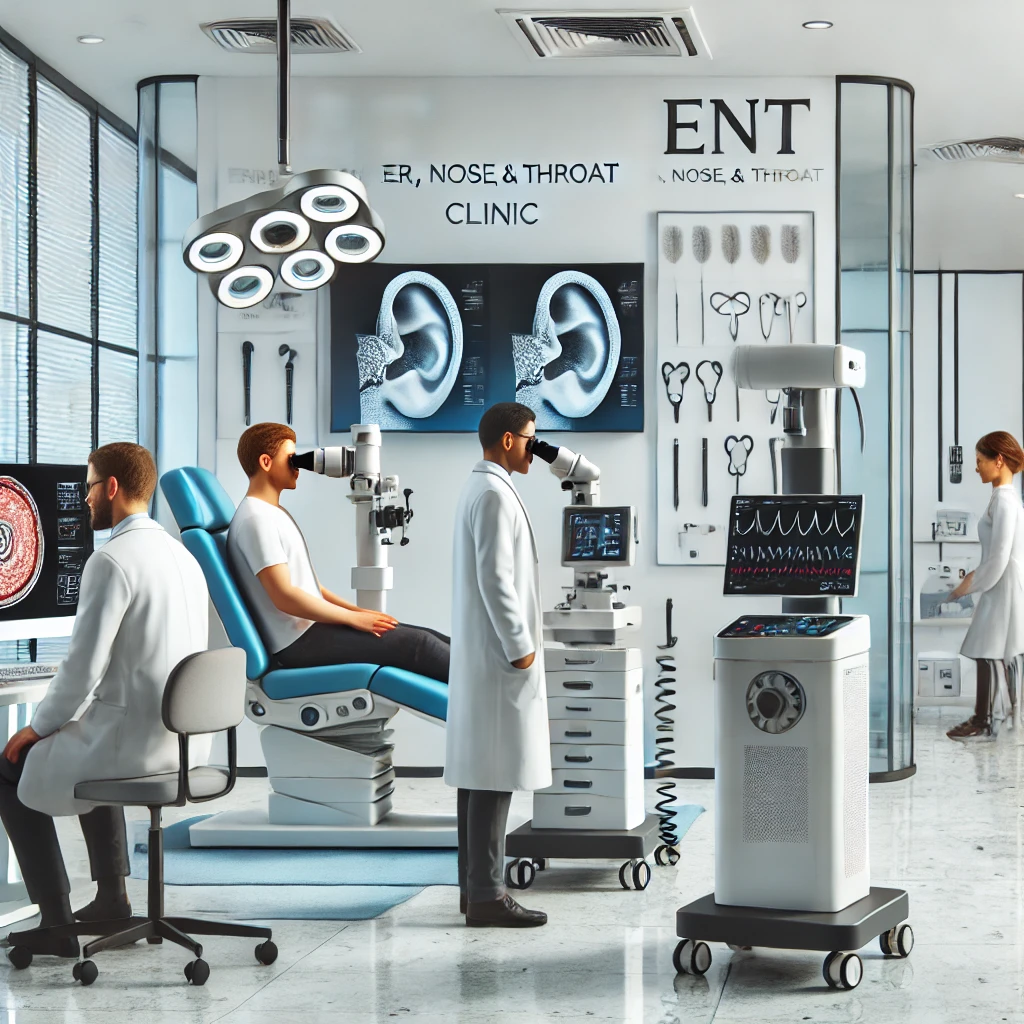
Ear, Nose, and Throat (ENT)
Our ENT department specializes in diagnosing and treating conditions related to the ear, nose, and throat. We provide expert care for hearing loss, sinus infections, tonsillitis, voice disorders, and other ENT-related conditions.
Key Benefits of ENT Care
Specialized diagnosis and treatment for ear, nose, and throat conditions, hearing assessments, allergy treatments, and surgical procedures.
-
01 What is ENT?
ENT (Otolaryngology) is a medical specialty that focuses on conditions related to the ear, nose, and throat.
-
02 When should I see an ENT specialist?
If you experience persistent ear pain, hearing loss, nasal congestion, sore throat, or voice disorders, consult an ENT specialist.
-
03 What are common ENT treatments?
Treatments include ear infection management, sinus surgery, tonsillectomy, allergy treatment, and hearing aids.
-
04 How can I prevent ENT issues?
Maintain ear hygiene, avoid loud noises, treat allergies, and seek medical help for prolonged throat infections or sinus problems.
-
05 Are ENT procedures safe?
Yes, ENT procedures are performed by skilled specialists using advanced techniques to ensure safe and effective treatment.
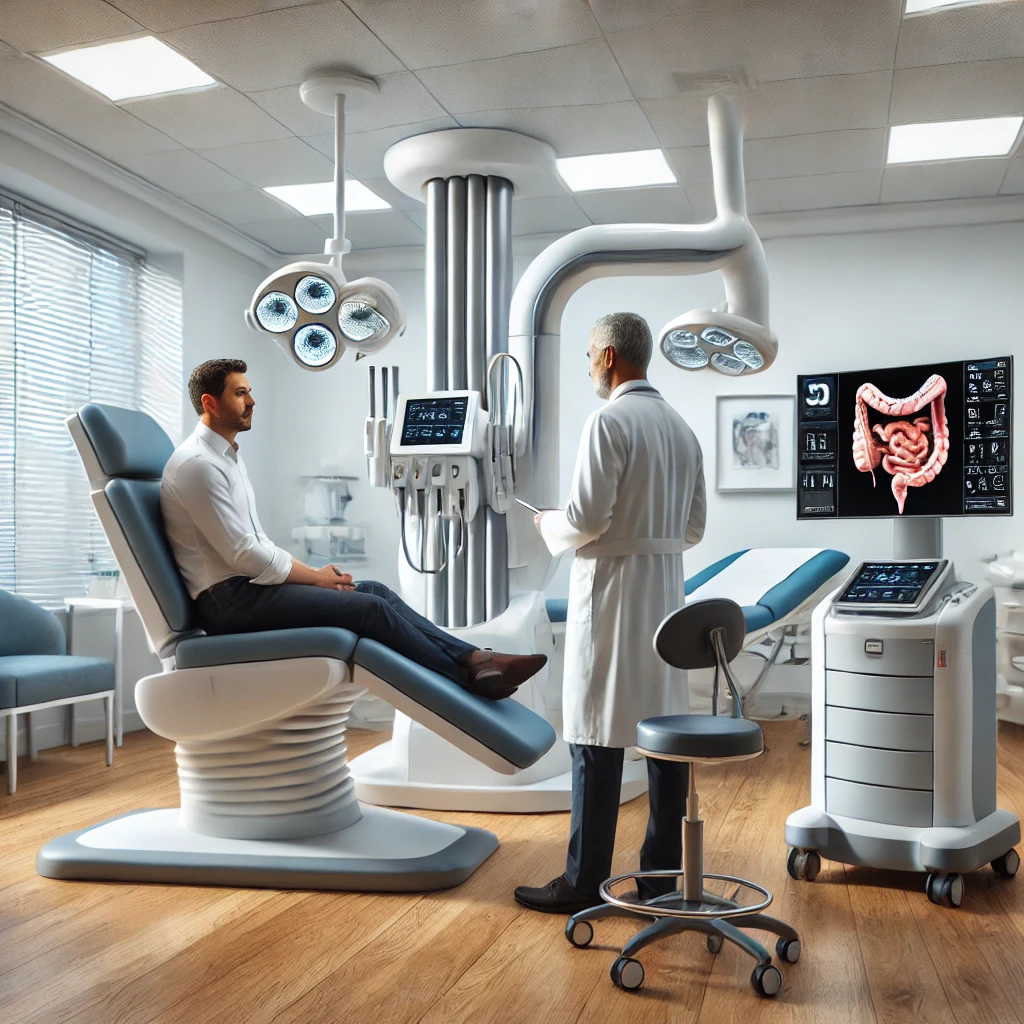
Gastroenterology
Our Gastroenterology department specializes in diagnosing and treating digestive disorders, including GERD, liver diseases, irritable bowel syndrome (IBS), and gastrointestinal infections. Our expert gastroenterologists provide personalized care for optimal digestive health.
Key Benefits of Gastroenterology Care
Expert diagnosis and treatment of digestive disorders, liver health management, endoscopic procedures, and nutritional guidance.
-
01 What is Gastroenterology?
Gastroenterology is a medical specialty focused on the digestive system, liver, and related disorders.
-
02 When should I see a Gastroenterologist?
If you experience persistent digestive issues like acid reflux, abdominal pain, or liver-related concerns, consult a gastroenterologist.
-
03 What are common gastroenterology treatments?
Treatments include endoscopy, colonoscopy, medication for digestive disorders, and dietary management plans.
-
04 How can I maintain good digestive health?
Eat a balanced diet, stay hydrated, exercise regularly, and avoid excessive alcohol or spicy foods.
-
05 Are gastroenterology procedures safe?
Yes, procedures like endoscopy and colonoscopy are performed using advanced techniques for accurate diagnosis and treatment.

Laboratory Medicine
Our Laboratory Medicine department offers comprehensive diagnostic services, including blood tests, pathology examinations, microbiology testing, and advanced molecular diagnostics. We ensure accurate and timely results for optimal patient care.
Key Benefits of Laboratory Medicine
Accurate diagnostics, early disease detection, comprehensive blood tests, and specialized pathology services.
-
01 What is Laboratory Medicine?
Laboratory Medicine involves diagnostic testing of blood, tissues, and bodily fluids to detect diseases and conditions.
-
02 When should I undergo lab tests?
Regular lab tests help in early disease detection. Consult a doctor if you experience unexplained symptoms or need routine check-ups.
-
03 What are common laboratory tests?
Common tests include blood tests, urine analysis, liver function tests, and microbiology cultures.
-
04 How are lab results interpreted?
Results are analyzed by specialists and shared with your doctor for diagnosis and treatment planning.
-
05 Are lab tests safe and reliable?
Yes, laboratory tests follow stringent protocols to ensure accurate and reliable results.

Neonatology
Our Neonatology department provides specialized care for newborns, including premature infants and those with medical conditions. Our expert neonatologists ensure the highest level of care for neonatal health and development.
Key Benefits of Neonatology
Specialized care for newborns, premature infant support, neonatal intensive care, and early developmental guidance.
-
01 What is Neonatology?
Neonatology is a medical specialty focusing on the care of newborns, especially premature or critically ill infants.
-
02 When should a baby see a neonatologist?
If a newborn is premature, has low birth weight, or faces medical complications, a neonatologist provides specialized care.
-
03 What treatments are available in neonatology?
Treatments include neonatal intensive care, respiratory support, nutrition management, and infection control.
-
04 How can parents support neonatal health?
Ensuring proper prenatal care, maintaining a healthy diet, and following medical advice are crucial for neonatal health.
-
05 Are neonatal treatments safe?
Yes, neonatal treatments are performed using the latest medical advancements to ensure the best possible care for newborns.

Obstetrics
Our Obstetrics department provides comprehensive care for expectant mothers, ensuring a safe and healthy pregnancy, labor, and postpartum period. Our expert obstetricians offer personalized maternity care and support.
Key Benefits of Obstetric Care
Expert prenatal care, safe labor and delivery, postpartum support, and maternal health guidance.
-
01 What is Obstetrics?
Obstetrics is a medical specialty focused on pregnancy, childbirth, and postpartum care for mothers and newborns.
-
02 When should I see an obstetrician?
Regular check-ups during pregnancy ensure maternal and fetal health. Consult an obstetrician as soon as pregnancy is confirmed.
-
03 What services do obstetricians provide?
Services include prenatal care, ultrasound screenings, labor management, and postpartum health support.
-
04 How can I prepare for childbirth?
Attending prenatal classes, maintaining a healthy lifestyle, and discussing birth plans with your obstetrician can help.
-
05 Is obstetric care safe?
Yes, obstetric care follows strict medical guidelines to ensure a safe pregnancy and childbirth experience.
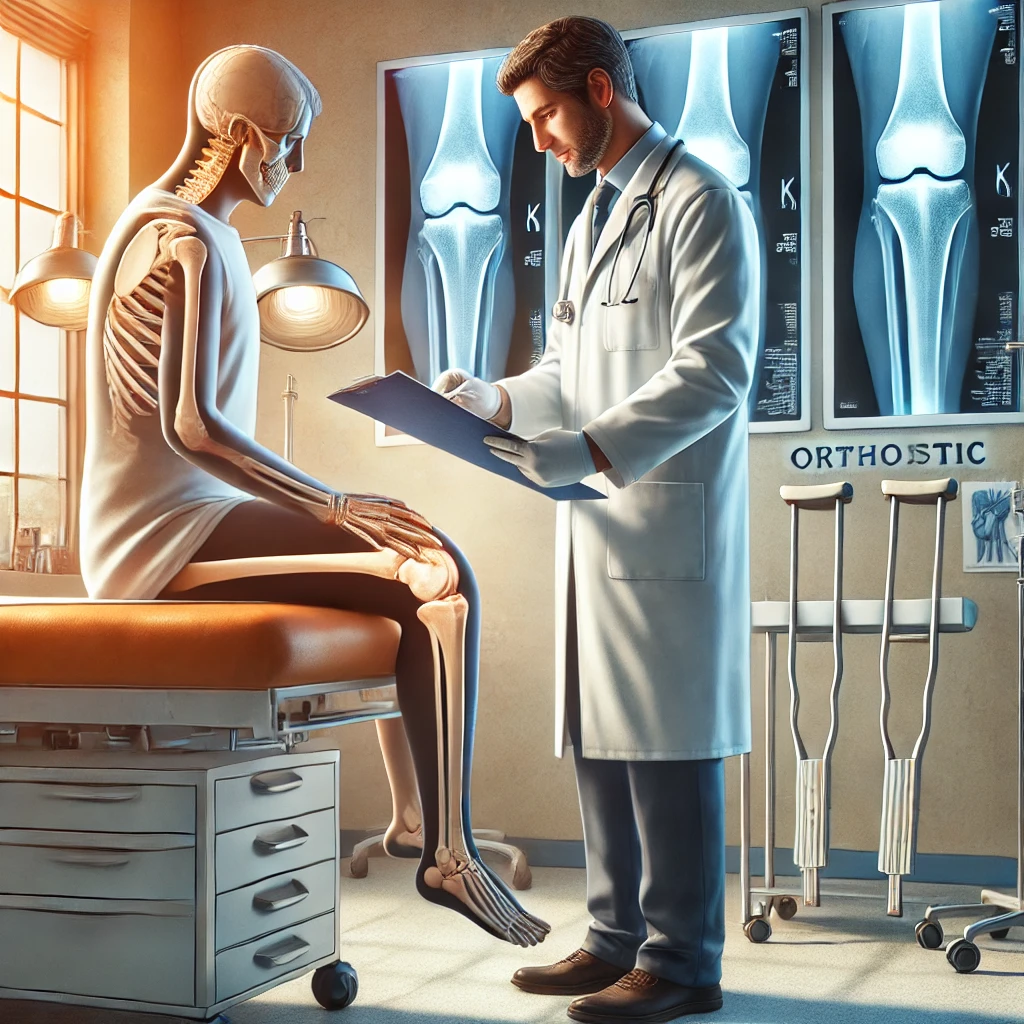
Orthopaedics
Our Orthopaedics department provides specialized care for musculoskeletal conditions, including fractures, joint disorders, and sports injuries. Our expert orthopaedic surgeons and specialists ensure comprehensive bone and joint care.
Key Benefits of Orthopaedic Care
Expert treatment for bone and joint disorders, fracture management, sports injury care, and joint replacement surgeries.
-
01 What is Orthopaedics?
Orthopaedics is a medical specialty focused on diagnosing and treating musculoskeletal conditions affecting bones, joints, and muscles.
-
02 When should I see an orthopaedic specialist?
If you experience persistent joint pain, fractures, sports injuries, or mobility issues, an orthopaedic consultation is recommended.
-
03 What treatments do orthopaedic specialists provide?
Treatments include fracture repair, joint replacement, arthritis management, physical therapy, and sports injury rehabilitation.
-
04 How can I maintain bone health?
A balanced diet rich in calcium and vitamin D, regular exercise, and proper posture can help maintain strong bones and joints.
-
05 Are orthopaedic surgeries safe?
Yes, modern orthopaedic surgeries utilize advanced techniques and minimally invasive procedures for safe and effective treatment.
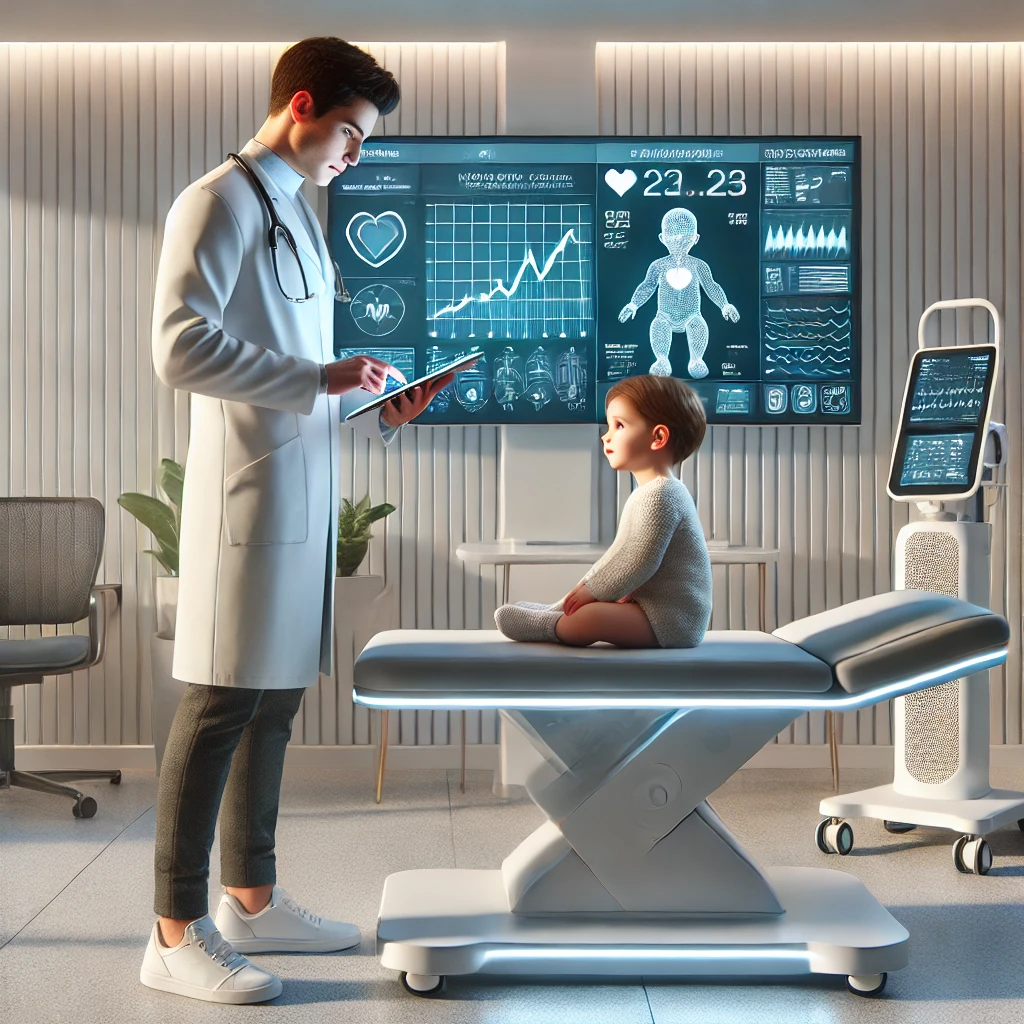
Pediatric Neurology
Our Pediatric Neurology department specializes in diagnosing and treating neurological disorders in children, including epilepsy, developmental delays, and neuromuscular conditions. Our expert neurologists provide comprehensive care tailored to young patients.
Key Benefits of Pediatric Neurology Care
Early diagnosis and treatment of neurological disorders, improved developmental outcomes, and personalized care for young patients.
-
01 What is Pediatric Neurology?
Pediatric Neurology focuses on diagnosing and treating neurological disorders in infants, children, and adolescents.
-
02 When should my child see a pediatric neurologist?
If your child has seizures, developmental delays, headaches, or neuromuscular issues, consulting a specialist is recommended.
-
03 What conditions do pediatric neurologists treat?
They treat epilepsy, autism-related neurological issues, cerebral palsy, migraines, and neurogenetic disorders.
-
04 How are pediatric neurological disorders diagnosed?
Diagnosis includes clinical evaluation, EEG, MRI, genetic testing, and neurodevelopmental assessments.
-
05 Is treatment available for childhood neurological conditions?
Yes, treatments include medications, physical therapy, cognitive therapies, and advanced neuro-interventions.
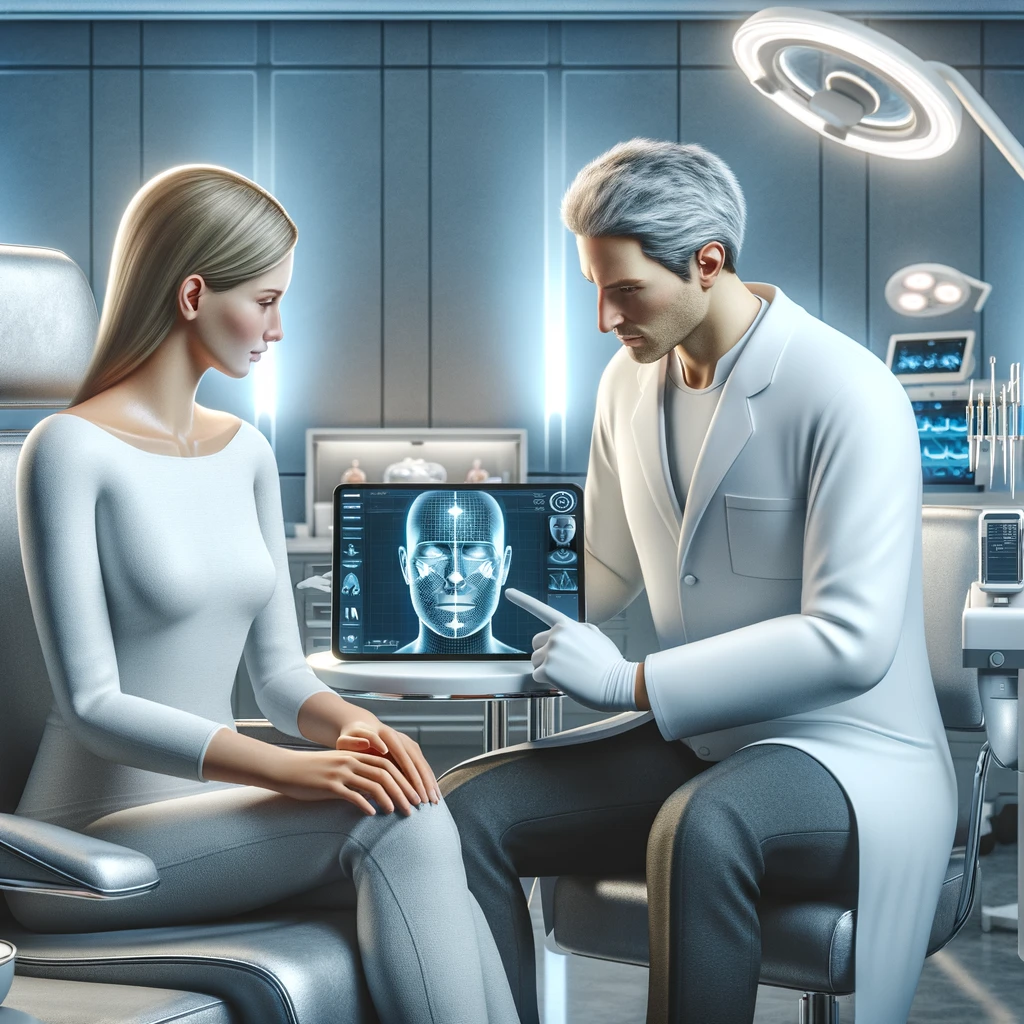
Plastic Surgery
Our Plastic Surgery department specializes in both reconstructive and cosmetic procedures, helping patients restore function and enhance aesthetics. From burn reconstruction to rhinoplasty, our expert surgeons offer advanced treatments tailored to each patient.
Key Benefits of Plastic Surgery
Improves aesthetics, restores function, enhances confidence, and provides advanced reconstructive solutions for trauma and congenital conditions.
-
01 What is Plastic Surgery?
Plastic Surgery includes both cosmetic and reconstructive procedures to enhance or restore appearance and function.
-
02 What types of Plastic Surgery are available?
Procedures include facelifts, breast reconstruction, burn repair, rhinoplasty, liposuction, and scar revision.
-
03 Who is a good candidate for Plastic Surgery?
Candidates include those seeking cosmetic enhancements, trauma recovery, birth defect corrections, or skin reconstruction.
-
04 Is Plastic Surgery safe?
Yes, when performed by certified plastic surgeons, modern procedures are safe with minimal risks.
-
05 How long is the recovery process?
Recovery varies by procedure, ranging from a few days to several weeks, with post-operative care ensuring the best results.
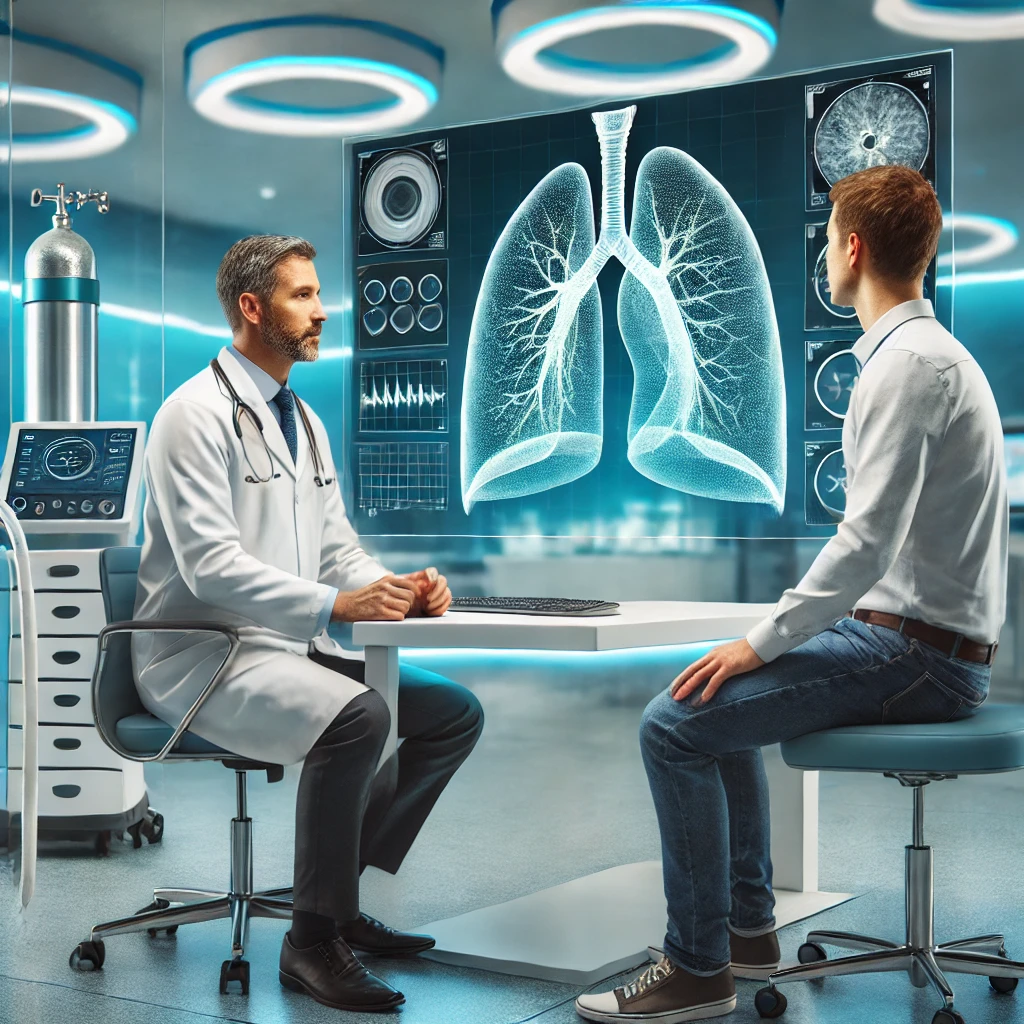
Pulmonology
Our Pulmonology department specializes in diagnosing and treating respiratory conditions, including asthma, COPD, pneumonia, and sleep disorders. Our expert pulmonologists provide comprehensive care to improve lung health and overall well-being.
Key Benefits of Pulmonology Care
Early diagnosis and treatment of lung diseases, improved respiratory function, better quality of life, and personalized care for patients with chronic conditions.
-
01 What is Pulmonology?
Pulmonology is the medical specialty focused on diseases and disorders of the respiratory system, including lungs and airways.
-
02 What conditions do pulmonologists treat?
Pulmonologists treat asthma, COPD, pneumonia, tuberculosis, lung cancer, and sleep apnea, among other conditions.
-
03 When should I see a pulmonologist?
If you experience chronic cough, shortness of breath, wheezing, or frequent lung infections, it is advisable to consult a specialist.
-
04 How are lung diseases diagnosed?
Diagnosis may include lung function tests, chest X-rays, CT scans, bronchoscopy, and sleep studies for accurate assessment.
-
05 What treatments are available for lung conditions?
Treatments include inhalers, medications, pulmonary rehabilitation, oxygen therapy, and advanced surgical procedures if necessary.
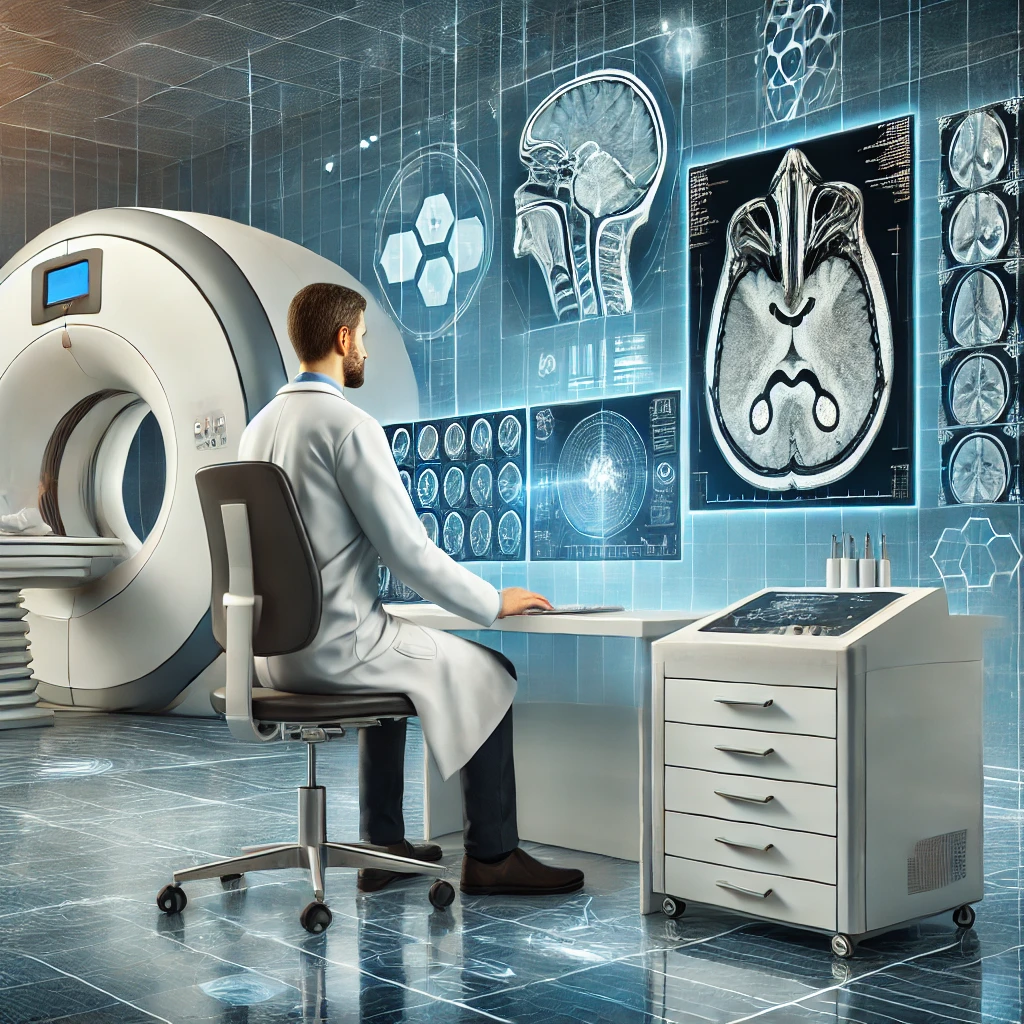
Radiology
Our Radiology department specializes in advanced imaging techniques, including X-rays, CT scans, MRIs, and ultrasounds, to diagnose and monitor a wide range of medical conditions with precision.
Key Benefits of Radiology
Provides early detection of diseases, supports accurate diagnosis, enhances treatment planning, and offers non-invasive imaging solutions.
-
01 What is Radiology?
Radiology is a medical field that uses imaging techniques such as X-rays, MRI, CT scans, and ultrasounds to diagnose and treat diseases.
-
02 What types of imaging are used in Radiology?
Common imaging methods include X-rays, CT scans, MRI, ultrasound, PET scans, and fluoroscopy.
-
03 When should I get a radiology test?
Radiology tests are recommended for diagnosing fractures, tumors, infections, internal injuries, and monitoring treatment progress.
-
04 Are radiology procedures safe?
Yes, modern radiology techniques use minimal radiation exposure and are performed with strict safety measures.
-
05 How long does a radiology scan take?
Depending on the type of imaging, scans can take anywhere from a few minutes (X-rays) to an hour (MRI).

Rheumatology
Our Rheumatology department specializes in diagnosing and treating autoimmune and inflammatory conditions, including arthritis, lupus, gout, and osteoporosis, providing expert care to improve mobility and quality of life.
Key Benefits of Rheumatology Care
Early diagnosis and management of autoimmune diseases, pain relief, improved joint function, and personalized treatment plans for chronic conditions.
-
01 What is Rheumatology?
Rheumatology is a branch of medicine that deals with autoimmune and inflammatory conditions affecting joints, muscles, and bones.
-
02 What conditions do rheumatologists treat?
Rheumatologists treat arthritis, lupus, gout, osteoporosis, fibromyalgia, and other autoimmune disorders.
-
03 When should I see a rheumatologist?
If you experience chronic joint pain, swelling, stiffness, or unexplained fatigue, you should consult a specialist.
-
04 How are rheumatic diseases diagnosed?
Diagnosis includes blood tests, imaging (X-ray, MRI), and physical examinations to assess joint and muscle health.
-
05 What treatments are available for rheumatic conditions?
Treatment includes medications, physical therapy, lifestyle modifications, and in some cases, surgical interventions.
